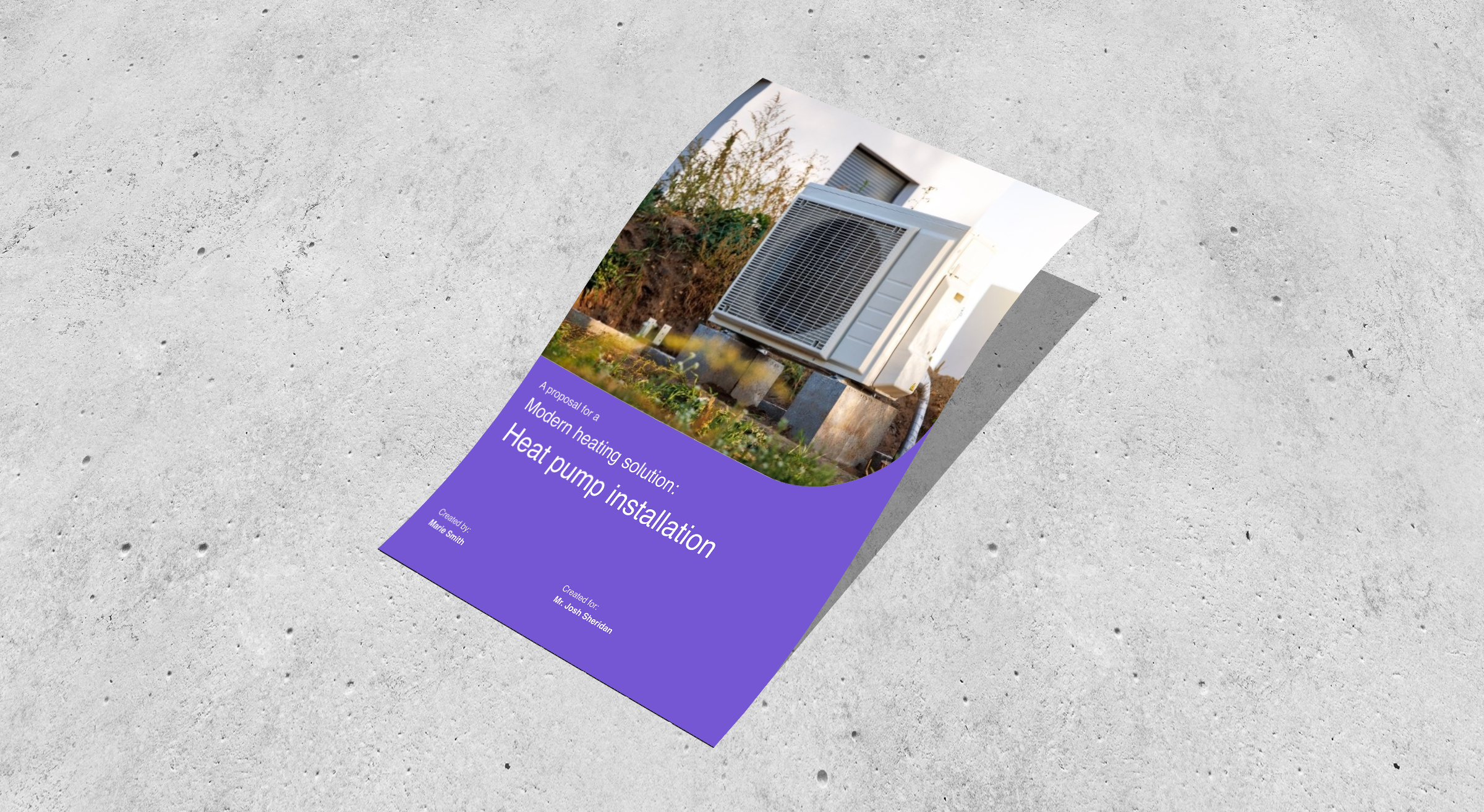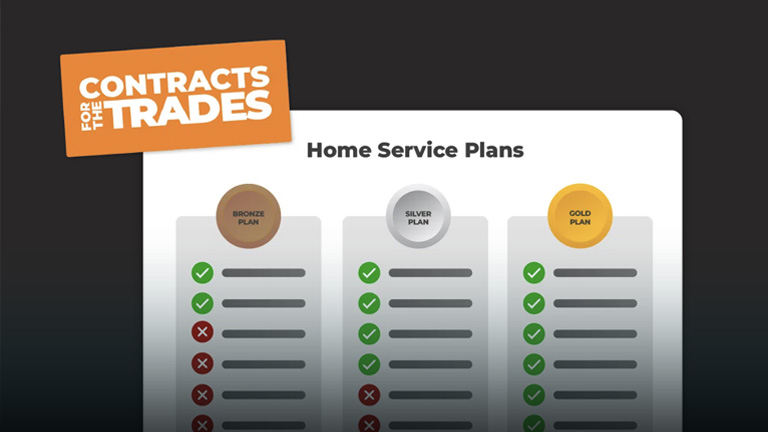Online Appointment Systems: How They Help Field Services
March 19, 2025 | Read: 8 minutes

A self-service online booking system is the future of booking for field service businesses.
If you’re not already using one, you need to…
Online appointment systems are powerful.
It’s simple, efficient, and easy to adjust.
What could be better for admin teams who have better things to do with their time?
Without a doubt, a self-service online booking system isn’t just a trend – it’s the undeniable future of how customers will expect to interact with field service businesses.
In an increasingly digital world, consumers are accustomed to the convenience and control of online self-service for everything from shopping to travel. They expect the same level of ease and accessibility when booking home repairs, maintenance, or any other field service.
If you’re not already offering this level of convenience, you risk falling behind the curve and failing to meet the evolving expectations of your customer base. You need to seriously consider implementing a self-service online booking system to remain competitive and relevant in the years to come.
Let’s dive in to learn more about how an online appointment system can help your business thrive:

What Is an Online Appointment System?
Simply put, an online booking system is a tool that allows customers to inquire via your website, and even directly schedule an appointment.
- Jobs automatically appear in your team’s calendar
- Office staff can review, confirm, and assign jobs to engineers
- Self-service booking saves your team time
- Efficiency increases for your team
- Profitability can be boosted
- Easier booking encourages repeat business
- A streamlined scheduling process simplifies job management and fulfillment
Let’s explore more about how exactly that happens:
Online Appointment Systems Convert More Prospects
No one, whether it’s your customers or admins, wants their time wasted.
The main benefit of online appointment systems is that they remove a majority of friction from your scheduling process.
In today’s fast-paced world, convenience is king.
The absolute last thing you want to do is create unnecessary friction in the booking process and force potential customers to jump through hoops just to secure an appointment.
Requiring individuals to take time off work, disrupting their busy schedules, or endure frustratingly long hold times on the phone to simply book a service is a surefire recipe for a negative experience.
These obstacles create barriers, and in many cases, customers will simply abandon the process and seek out a competitor who offers a more seamless and user-friendly booking solution. Don’t let outdated scheduling methods cost you valuable business.
The Evidence:
According to GetApp, nearly 70% of people would rather book their services online, while only about 20% prefer to book over the phone. This number is even more concentrated in Gen Z and millennial age groups, according to MarketBox. If you’re not using a portal, that’s a lot of untapped business…
While generating initial interest and acquiring new customers might not be the biggest hurdle for many trades businesses, the real challenge often lies in the follow-through.
Keeping meticulous records of inquiries, managing booking requests effectively, and staying organised with appointments can quickly become overwhelming.
This is precisely where the elegance and efficiency of a simple booking system shine. By centralising your scheduling process, it acts as a digital hub, ensuring no lead slips through the cracks and empowering your team to manage potential jobs with far greater precision and control.
Use an online booking portal for 24/7 lead management
One of the key ways online appointment systems fuel business growth is through sheer efficiency.
For new customers, the process of filling out a simple online form to book an appointment is incredibly quick and convenient.
Furthermore, the ease of initial contact directly translates into a faster influx of new clients into your business ecosystem and, crucially, their essential data is automatically logged into your CRM.
This automated data entry is a game-changer, freeing up your administrative staff from the time-consuming task of manually inputting new customer details.
This saved time can then be redirected towards more strategic activities that directly contribute to business expansion, while simultaneously ensuring you have a centralised and organised database of your growing clientele.
Appeal to Customer’s Preferences
It’s undeniable, customers value digital experiences, especially when making purchases.
Taking your booking services online provides a clear competitive advantage for your business.
In fact, 94% of respondents to a GetApp poll said they’d be more likely to choose a provider that uses online booking over one that doesn’t.
Simply put, if your business isn’t offering self-service online booking, your prospects are likely going to competitors who do.
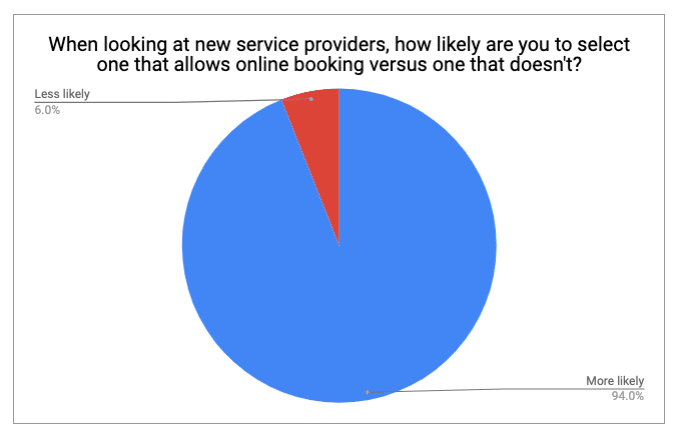
Your customers and prospects expect to you cater to them. In an age where people already use the internet for much of their day-to-day, a digital booking form on your website perfectly aligns with their lifestyle.
An online appointment system pays off.
- Think about your customers’ experiences navigating your website.
- People use your website to understand your services and make informed decisions.
- Providing a scheduling system is a logical next step that compels customers to purchase your services right away.
An Online Booking System Empowers Customers
The power of your chosen digital appointment solution lies in its flexibility, particularly when it comes to personalisation. Your team should have intuitive control over exactly what services are offered through your online booking portal.
This means you’re not locked into a rigid structure; instead, you have the freedom to strategically decide which services are best suited for online self-booking and which might require a more direct interaction.
Ultimately, the online booking form presented to your customers will be a curated list, displaying only the services you’ve explicitly chosen to make available online, ensuring a tailored and manageable booking experience.
Customisation is important for your business, but it also helps customers!
Not only does a well-designed booking form menu look professional, it helps build trust with customers and allows them to quickly select the service they’re looking for.
Even better, you can even include the service price so customers will know what they’ll owe.
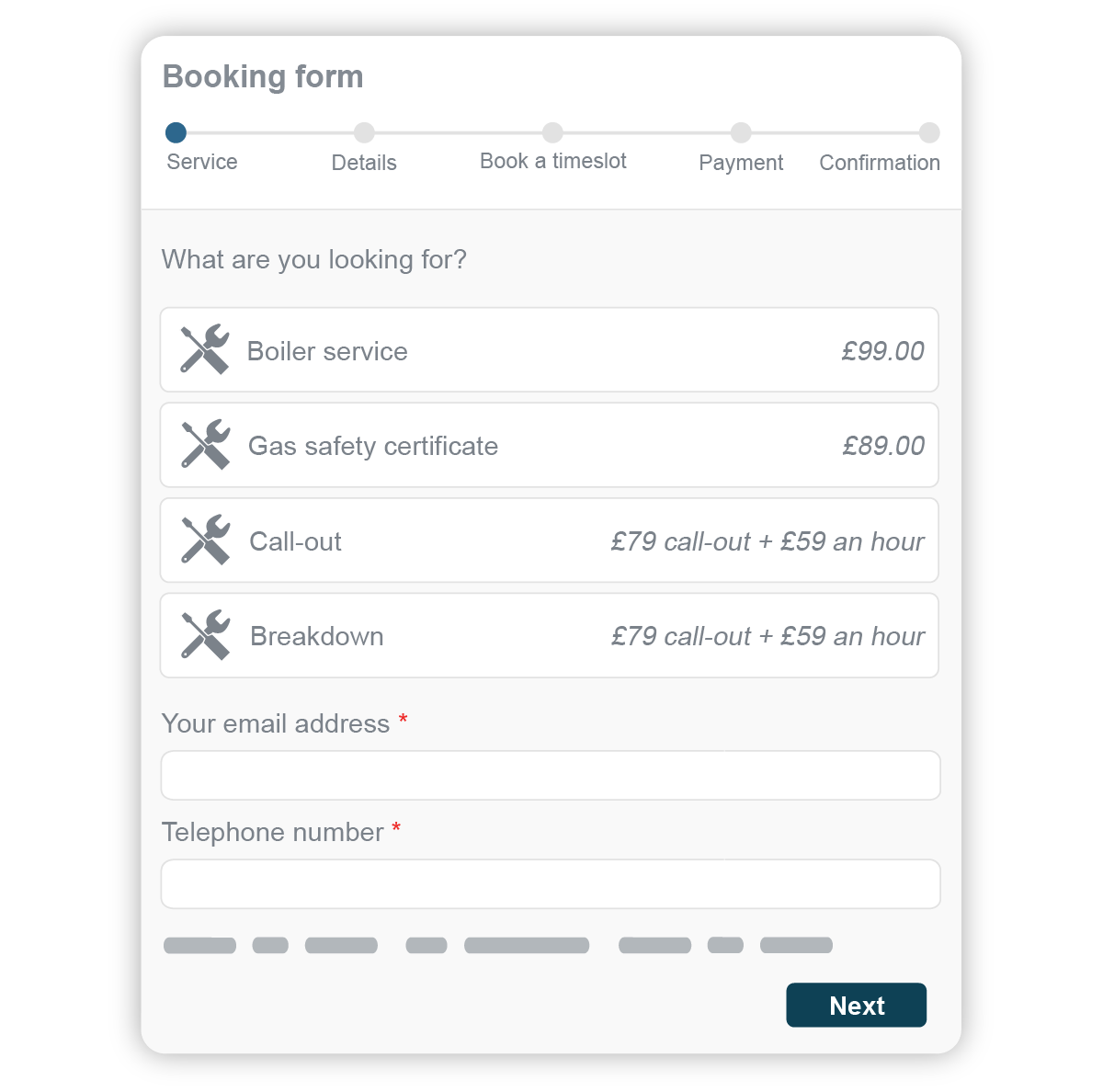
Top-notch booking forms provide a spot where they can choose their date and time slot and give payment! Self-service empowers customers to take control of their appointments.
Online booking should make the scheduling process as painless as possible for customers while giving your team all the information they need. A revamped digital booking experience is a win-win for everyone involved and will help you book more jobs quickly.
Customers Can Attach Files and Photos
Sometimes, an image is the best way to get a point across. Especially with service jobs, seeing a photo of your customer’s problem can help you see exactly what is going on.
In the fast-paced world of trades, time is money. Empowering customers to share photos in advance of a job can be a significant time-saver for everyone involved.
Instead of lengthy phone calls trying to articulate a problem or back-and-forth emails clarifying details, a simple image can convey a wealth of information instantly.
This visual shortcut eliminates the need for extensive written descriptions, allowing your team to quickly grasp the situation and plan accordingly. Also, this streamlined communication not only saves your team valuable time but also provides customers with a faster and more efficient service experience.
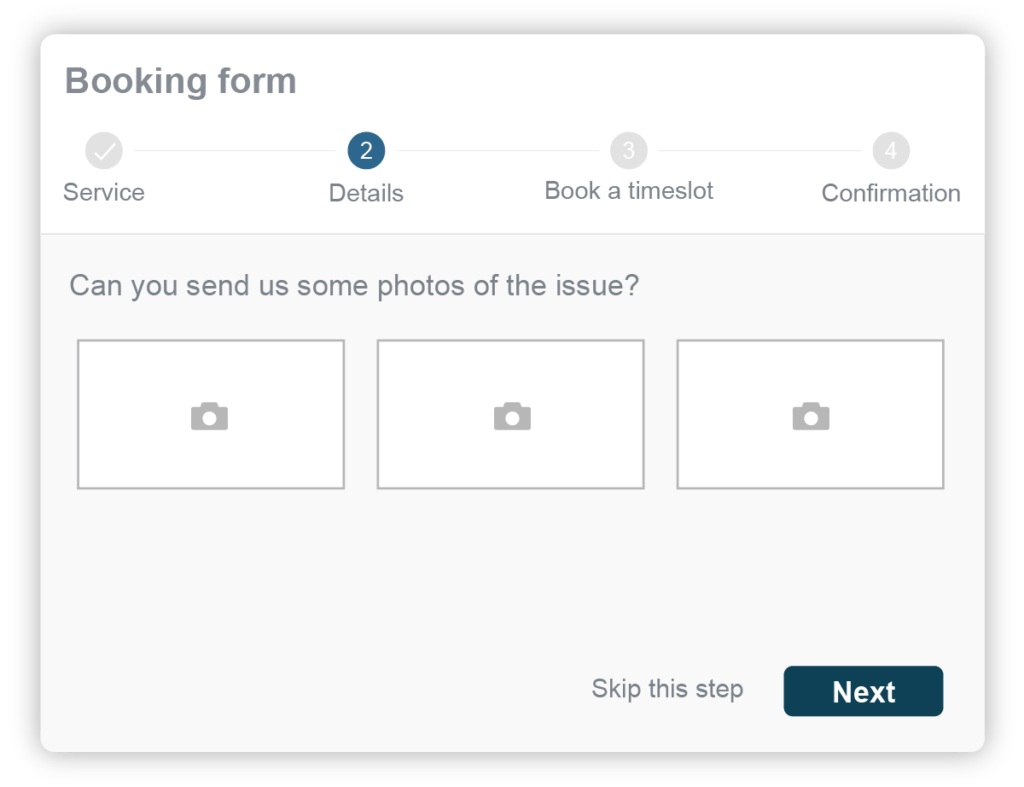
Allowing the option for them to upload a photo not only saves them time, but it can give your engineers the context they need to help prepare for the job.
New Appointments Go Directly Into Diaries
The best online appointment systems directly sync to your calendar. When appointments are automatically scheduled, you can dramatically cut down on tedious scheduling tasks.
Automation means you won’t have to worry about manually booking new jobs. Your office can focus on other areas of your business!
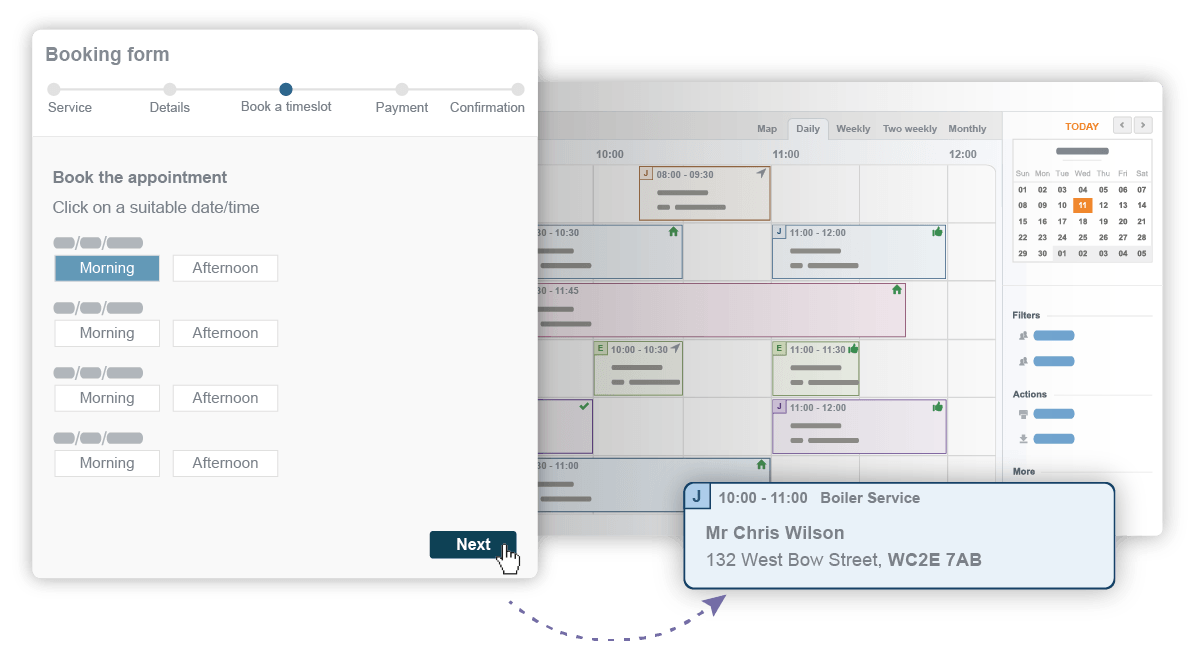
Leave voicemails, games of phone tag, and disorganised calendars in the past! Online booking can help your team secure an appointment faster, get the job done sooner, and ultimately get paid quicker.
Reduce Admin Time Spent Booking Jobs
Simply put, compared to manual processes, online booking systems are less exhausting to manage.
Furthermore, an online appointment system takes a lot of pressure off your service dispatchers. This can make your entire business more efficient; your team can devote more time to higher-priority tasks.
On top of that, this system ensures fewer scheduling errors and miscommunication.
Customers input their information directly into the form, so there’s no need to listen intently to details over the phone and write them down correctly.
Getting Started With an Online Appointment System!
Online appointment systems offer major benefits for any trades company looking to implement field service management software. This tool has the capacity to increase your customer base, while keeping them happy any time of day.
- Commusoft’s customer self-service software can do everything mentioned above, and can remove 90% of your admin time.
- Our all-in-one job management software is designed around powerful features. We help field service companies make meaningful changes to organise and manage their business.
Read more and see how Commusoft can help you take your business to the next level! We’re here to help.

Emma Bozenda
When I'm not writing about the best digital solutions for field service businesses, I'm either playing with my three dogs, or baking sweet treats!

